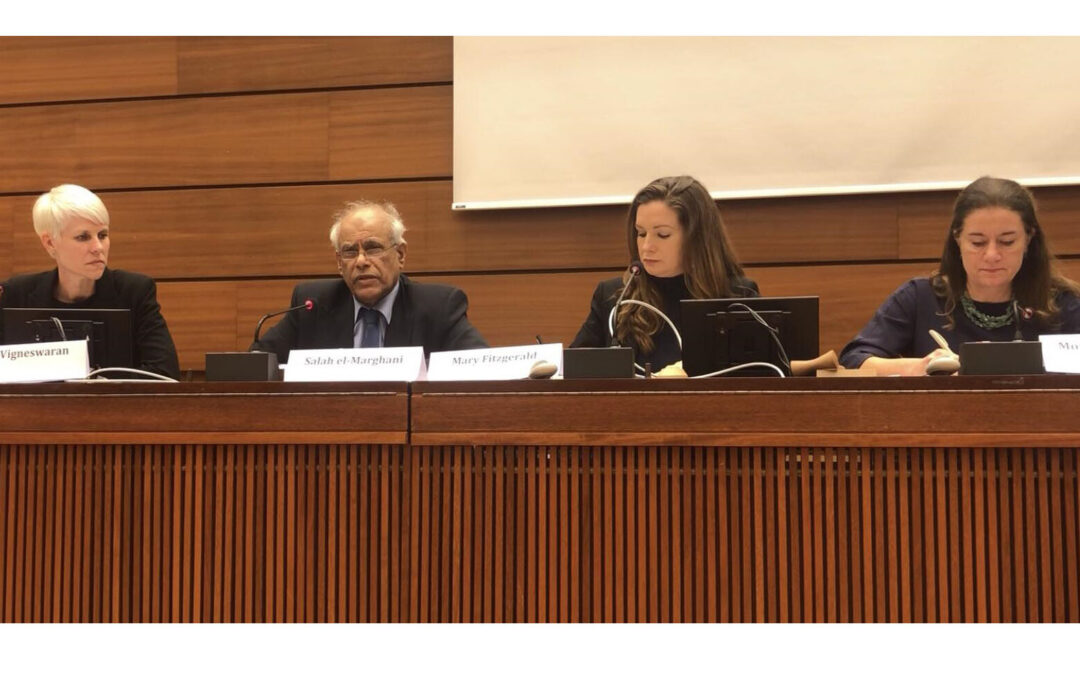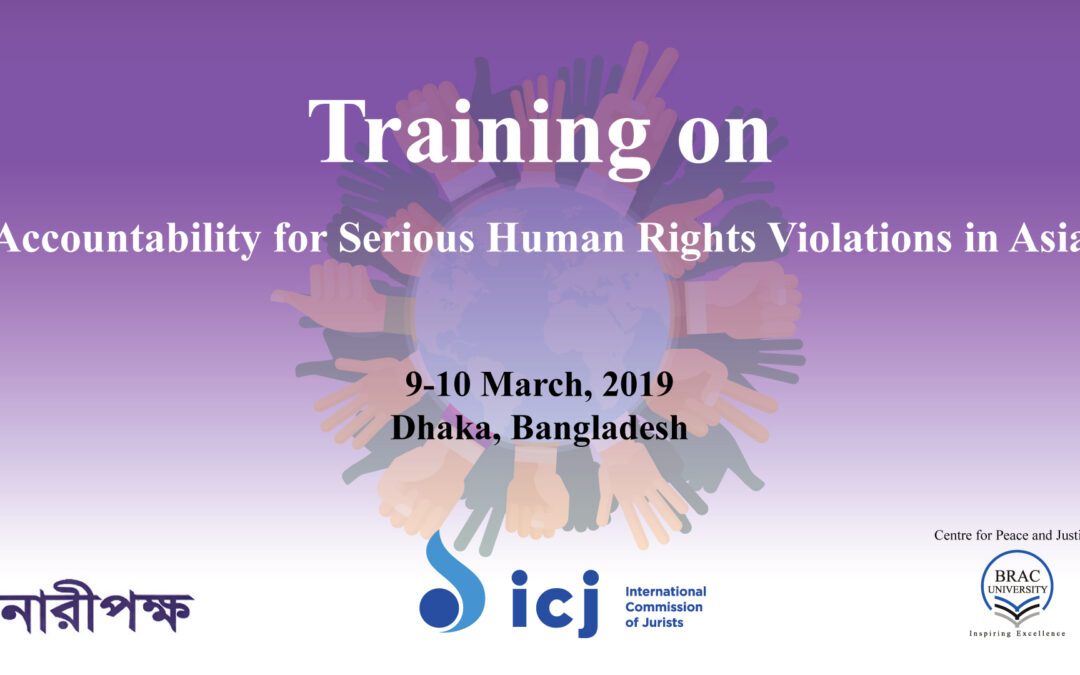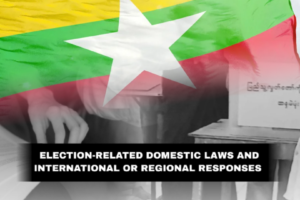
Apr 1, 2019 | News
As military courts in Pakistan once again cease to have jurisdiction over civilians for terrorism-related offences, the Government must bring reforms to strengthen the country’s criminal justice system, the ICJ said today.
Perpetrators of terrorist attacks and other serious crime must be brought to justice fair trials before competent, independent and impartial courts as required under international law, the ICJ added.
“The lapse of the jurisdiction of military courts over civilians is a step in the right direction, but unsurprisingly – even four years after military courts were empowered to try civilians – there is no sign of the promised reforms to strengthen the ordinary criminal justice system to effectively and fairly handle terrorism-related cases,” said Frederick Rawski, ICJ’s Asia Director.
The 23rd Amendment and corresponding amendments to the Army Act, 1952, lapsed on 30 March 2019, as their respective two-year sunset clauses expired. So far, the Government has failed to get support from opposition parties for a constitutional amendment to once again extend the jurisdiction of military courts to conduct trials of civilians.
“The Government must not re-enact legislation to continue secret military trials of civilians, nor resort to more short-term, short-sighted security measures that are contrary to Pakistan’s obligations to protect human rights,” Rawski said.
“Instead, the Government should urgently invest in enhancing the capacity and security of judges, investigators and prosecutors to make the regular criminal justice system more effective in conducting fair, credible terrorism trials, and bringing perpetrators to account without imposing the death penalty.”
According to military sources and ICJ’s monitoring of military trials in Pakistan since January 2015, military courts have convicted 617 people for terrorism-related offences, out of which 346 people have been sentenced to death and 271 people have been given prison sentences. At least 56 people have been hanged. Only four people have been acquitted.
The ICJ has documented serious fair trials violations in the operation of military courts, including: denial of the right to counsel of choice; failure to disclose the charges against the accused; denial of a public hearing; failure to give convicts copies of a judgment with evidence and reasons for the verdict; and a very high number of convictions based on “confessions” without adequate safeguards against torture and ill treatment.
Contact
Frederick Rawski, ICJ Asia Pacific Regional Director (Bangkok), e: frederick.rawski(a)icj.org
Reema Omer, ICJ International Legal Adviser for Pakistan (London), t: +447889565691; e: reema.omer(a)icj.org
Additional information
Military courts were first empowered to try civilians for certain terrorism-related offences in January 2015 through the 21st Amendment to the Constitution and amendments to the Pakistan Army Act, 1952, which were in operation for a period of two years.
The expansion of the jurisdiction of military tribunals was a key part of the Government’s 20-point National Action Plan, adopted following the attack on the Army Public School in Peshawar in December 2014. NAP envisioned military courts to be a short-term “solution” to try “terrorists”, to be operational only for a two-year period during which the government would bring about necessary “reforms in criminal courts system to strengthen the anti-terrorism institutions”.
Despite promises that military courts were only temporary, after the expiration of the 21st Amendment, on 31 March 2017, Parliament enacted the 23rd Amendment and amendments to the Army Act to renew military courts’ jurisdiction over civilians. The amendments were given retrospective effect from 7 January 2017, and were due to lapse two years after their date of “commencement”. The expanded jurisdiction of military courts lapsed on 30 March 2019 (even though earlier reports suggested the amendments would expire on 6 January 2019) — two years after the date of “operation” of the 23rd Amendment).
The ICJ opposes the death penalty in all circumstances as a form cruel, inhuman and degrading punishment and an arbitrary denial of the right to life. The ICJ recalls that the UN General Assembly has by overwhelming majorities repeatedly called on all states the retain the death penalty to place a moratorium on the practice with a view to abolition. Pakistan previously had such a moratorium from 2008 to 2014.

Mar 20, 2019 | News
Today, the ICJ launched a legal aid clinic project in collaboration with Great Zimbabwe University, Herbert Chitepo Law School to help facilitate the establishment of a legal aid clinic at the University’s Mucheke campus.
The clinic is located at the Mucheke Campus of University in a high-density suburb in Masvingo, thereby making the services offered by the legal aid clinic more accessible for persons from disadvantaged or marginalized groups in the community.
The project, supported by the European Union, aims to improve access to justice for communities by offering free legal assistance at the University legal aid clinic, while also providing an opportunity for students to develop critical skills that will enhance their work as legal practitioners. The activity is part of a wider initiative to develop and improve University legal aid clinics in Zimbabwe.
Arnold Tsunga, the ICJ Africa Regional Director, remarked that the launch of the legal aid clinics is a building block towards greater access to justice for the people of Zimbabwe and a positive step towards attainment of SDG 16 which speaks to the importance of peace, justice and strong institutions.
Francisca Midzi, a representative of the European Union delegation to Zimbabwe, stated in her remarks that “as the law students encounter real legal problems faced by the people, [the initiative] will teach them to have a social and professional responsibility to pursue justice in society. Herbert Chitepo Law School is injecting and inculcating a spirit of service in their students and they will carry it wherever they go to practice law and gradually this will transform Zimbabwe’s legal system to be more concerned about a court user who has limited knowledge and means to fully access justice.”
Professor R.J. Zvobgo, the Vice Chancellor of Great Zimbabwe University, commended this milestone achievement and stated that it provides an opportunity for the students to give back to the community by improving the ability of persons from affected groups to access justice.
“The free legal aid assists in eradicating the notion that a university is an ivory tower, divorced from the realities of the community in which it is located,” he said.
Contact:
Brian Penduka, e: brian.penduka(a)icj.org, t: +263772274307
Elizabeth Mangenje, e: elizabeth.mangenje(a)icj.org, t: +263774742420

Mar 19, 2019 | News
Today, the ICJ held a side event titled “Accountability for crimes under international law in Libya: Challenges and Prospects” during the 40th Session of the UN Human Rights Council in Geneva.
The event was co-hosted by the Permanent Mission of the Kingdom of Netherlands and the Permanent Mission of the Federal Republic of Germany.
A panel of renowned experts discussed a number of issues relating to accountability for crimes under international law in Libya, including shortcomings in Libyan law and practice, political and security challenges impacting prospects for reform, the role of the International Criminal Court, and the consequences for tackling human trafficking and abuse of migrants.
The panel included Monique van Daalen, Ambassador of the Permanent Mission of the Netherlands; Salah el-Marghani, former Justice Minister of Libya; Marwa Mohammed, Lawyers for Justice in Libya; Mark Kersten, Munk School of Global Affairs and Public Policy, University of Toronto, and Wayamo Foundation; Kate Vigneswaran, Senior Legal Adviser for the ICJ’s Middle East and North Africa Programme; and Mary Fitzgerald, Libya researcher and expert.
During the side event, the ICJ presented and distributed a briefing paper highlighting the key issues that hamper accountability for crimes under international law in Libya, including the definition of crimes under domestic law, amnesties and imunities, rights during arrest and detention, and rights at trial.
The paper included detailed recommendations to the Libyan authorities as well as the international community with a view to tackling the main obstacles to the achievement of accountability in Libya.
The briefing paper anticipates the publication of the forthcoming ICJ report on Libya’s criminal justice system.
Download:
Lybia-Accoutability challenges-Advocacy-Analysis brief-2019-ENG (Briefing paper, in PDF)
Libya HRC side event flyer – March 2019 (Event flyer, in PDF)

Mar 12, 2019 | Events, News
The ICJ convened a two-day workshop from 9th to 10th March 2019 in Dhaka, Bangladesh to discuss applicable international legal mechanisms designed to achieve accountability for serious human rights violations in Asia.
Bangladesh-based non-government organizations the Centre for Peace and Justice and Naripokkho co-hosted the event with the ICJ, with a representative of AJAR (Asia Justice and Rights) also joining. Twenty Bangladeshi lawyers, activists and academics attended the event.
Legal advisers from the ICJ provided an overview of the Independent Investigative Mechanism for Myanmar (IIMM), currently being established following a UN Human Rights Council resolution in September 2018.
They also discussed the structure and procedures of the International Criminal Court (ICC), whose prosecutors are currently conducting a preliminary examination into the deportation of Rohingyas from Myanmar into Bangladesh. Unlike Myanmar, Bangladesh is a State Party to the Rome Statute of the ICC, and its pre-trial chamber has indicated the Court has jurisdiction over crimes listed in the Rome Stature were one element, or part of a crime, was committed inside the territory of Bangladesh.
AJAR’s co-founder provided an overview of transitional justice processes, drawing upon international and regional experiences of truth-seeking, prosecutions, reparations and reforms to guarantee non-repetition of human rights violations.
Two of the ICJ’s legal advisers also travelled to Cox’s Bazar, Bangladesh, where they met relevant stakeholders to discuss the situation of Rohingya refugees from Myanmar, and to share information about accountability mechanisms, including about expected timelines, outcomes and limitations.
The activity is part of the ICJ’s global work on promoting accountability and redress for gross human rights violations to facilitate justice and deter repetition.
Contact: Kingsley Abbott, ICJ Senior Legal Advisor for Global Redress and Accountability e: kingsley.abbott@icj.org

Mar 11, 2019 | Advocacy
The “Independent Commission of Enquiry” (ICOE) on Rakhine State, announced by the Government of Myanmar in May 2018 and established in July, has not demonstrated any reasonable prospect of meeting international standards of independence, impartiality or effectively contributing to justice or accountability for human rights violations constituting crimes under international law.
The ICOE is not transparent about how its information gathering will, if at all, shed light on the truth, or contribute to accountability and redress, while protecting individuals it comes into contact with. It is also yet to fulfill conditions called for by the UN Human Rights Council in its September 2018 resolution 39/2.
Any move to shift reference in the Council resolution currently under discussion, to include more positive recognition of the ICOE, would be wholly unjustified.
Furthermore, the government continues its unwillingness to address credible allegations of crimes under international law, including in its report to the CEDAW Committee in February in which rape allegations were dismissed as “wild claims.”
The International Commission of Jurists (ICJ), in response to a “Call for Submissions” on 12 December 2018, inviting “individuals, groups, witnesses and alleged victims to submit their complaints or accounts, with supporting data and evidence,” wrote to the ICOE Chairperson with four questions, summarised as:
- Are any measures in place to protect complainants and witnesses against threats of violence, legal action or other forms of reprisals for providing information to the ICOE? What specific measures have been taken to ensure the confidentiality of any materials submitted, and to protect the identities and wellbeing of witnesses?
- Given statements by commissioners that accountability is not part of their mandate, as the ICOE is seeking submissions of data and evidence from victims and witnesses, please clarify the ICOE’s position on how these submissions will be utilized – including for possible criminal investigations.
- Can you provide information on any measures taken to deal with real or perceived conflicts of interests that may affect the public’s trust in the ICOE’s impartiality and independence, including victims and witnesses and others who may submit materials in response to your call?
- The recommendations of past Commissions of Inquiry have not been fully implemented. Given the sensitive nature of the ICOE’s mandate, what considerations have been taken into account to increase the likelihood that recommendations will be more effectively implemented than in the past?
The ICOE did not respond to these questions, despite having formally acknowledged receipt of the letter. The deadline for public submissions to the ICOE has now passed. Its silence in this instance illustrates a broader failure to demonstrate independence or transparency and underlines protection concerns.
The ICJ is unaware of efforts by the ICOE to genuinely seek cooperation with the UN Independent International Fact Finding Mission or the Special Rapporteur on the situation of human rights in Myanmar, as has been called for by the Council.
Based on extensive experience and research in Myanmar and globally, and recalling a 5-page legal assessment of the ICOE published in September 2018, the ICJ remains of the view that the ICOE, like previous government-backed inquires, cannot effectively contribute to or deliver justice or accountability.
Myanmar-Inquiry Rakhine-Advocacy-2019-BUR (Burmese version, in PDF)









